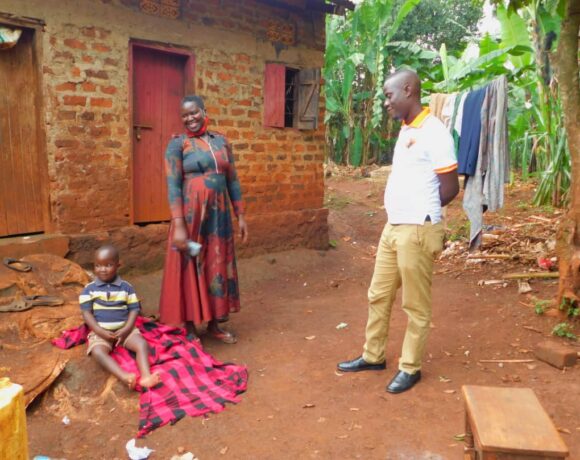
Home and Follow-Up Visits
We conduct routine house-to-house visits, ensuring that children with disabilities and their families receive consistent, personalized support in their homes. Given the inaccessibility of some villages due to transportation challenges and difficult terrain, home visits serve as an effective strategy for delivering essential services to children who might otherwise be unable to access them.
We believe that parents and caregivers play a central role in the rehabilitation process. Since parents spend the most time with their children, we actively involve them as equal partners from the beginning to the end of our intervention. Our goal is to empower parents by providing hands-on training in therapy exercises, daily care routines, and assistive device usage, ensuring they can support their child’s progress even in our absence.
Beyond therapy, our home visits allow us to understand the broader challenges affecting the child’s development, including poverty, lack of access to healthcare, and unsafe living conditions. We work closely with families to remove these barriers and create an environment where children with disabilities can thrive, participate, and reach their full potential.
How We Support Families through Home and Follow-Up Visits
- We assess each child’s unique needs and provide disability-specific therapies tailored to their condition.
- Our team trains parents and caregivers on how to implement therapy exercises at home to ensure continuous rehabilitation.
- We provide counseling and emotional support, helping caregivers cope with the challenges of raising a child with disabilities.
- Our staff advises families on how to navigate the healthcare system to access essential medical care and medications.
- We connect families with specialist services, assistive devices, and referrals for further medical intervention.
- We train caregivers in hygiene activities, feeding techniques, dressing, and independent living skills.
- We incorporate social skills training through interactive play, group activities, and communication exercises to promote the child’s confidence and social development.
- Home visits help our team identify additional challenges in the home environment that may be affecting the child’s development.
